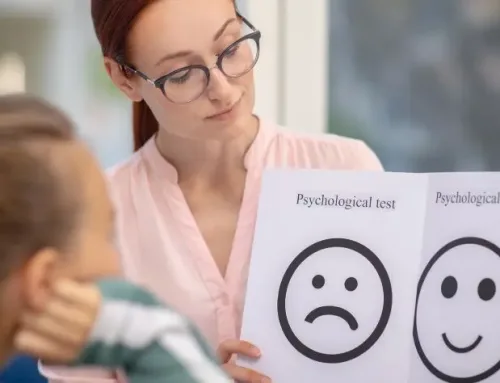What Degree Do You Need to Be a Therapist in California? Education Pathways to Licensed Therapist

What degree do you need to be a therapist in California? It’s a practical question with life-changing implications—for those ready to turn empathy and insight into a meaningful career. Whether you’re just starting out or looking to shift paths, understanding the academic steps is key to moving forward with purpose.
California offers several routes to becoming a licensed therapist, each tied to specific degrees and training requirements. The choices can feel overwhelming at first, but the right one depends on the kind of work you want to do and the populations you hope to serve. Knowing the difference could shape not just your education, but your future in the field.
Education Pathways to Becoming a Licensed Therapist in California
What Degree Do You Need to Be a Therapist in California?
Becoming a therapist in California starts with choosing the right academic path. The type of degree you pursue will determine the kind of therapy license you can qualify for, and ultimately, the scope of your practice. Whether your goal is to work in schools, clinics, hospitals, or private practice, your education lays the foundation for how you’ll serve others.
For many professionals, the journey doesn’t stop at initial licensure. Licensed therapists often return to graduate study to deepen their clinical understanding, broaden their leadership skills, and move into roles such as supervisor, program director, educator, or community advocate. Advanced doctoral education, like a PsyD, allows experienced practitioners to expand their influence and contribute to the field in new and meaningful ways.
Master’s Degree: The Starting Point for Licensed Therapists
To become a licensed therapist in California, a master’s degree is the first step. This is the minimum academic requirement for several common licenses that allow you to work with individuals, couples, families, and groups. Programs typically combine coursework in human behavior, mental health, and ethics with hands-on clinical training.
Here are the licenses you can pursue with a master’s degree:
- Licensed Marriage and Family Therapist (LMFT)
- Licensed Clinical Social Worker (LCSW)
- Licensed Professional Clinical Counselor (LPCC)
Each of these licenses requires a graduate degree from an accredited program, followed by supervised clinical hours and passing state exams. With this level of education, you’ll be well-equipped to begin a meaningful career in mental health.
Doctoral Degree: PhD and PsyD for Licensed Psychologists
For those aiming to practice at the highest level in the field, a doctoral degree is the standard. Earning a Doctor of Psychology (PsyD) or a Doctor of Philosophy in Psychology (PhD) opens the door to becoming a Licensed Psychologist in California. This PsyD degree is designed for students who want to provide advanced psychological assessment, psychotherapy, and treatment across a wide range of clinical settings.
The PsyD offers deeper training in diagnostics, research, and clinical techniques. It also comes with broader career opportunities, including roles in leadership, supervision, teaching, and specialized care. If you’re drawn to long-term impact and clinical depth, this may be your ideal path.
Explore the PsyD Program at SCUHS
The Doctor of Psychology (PsyD) in Psychodynamic Psychology program at the Southern California University of Health Sciences (SCUHS) is built for students ready to lead in mental health care. We focus on clinical excellence, cultural competency, and hands-on experience that prepares you for real-world practice. With expert faculty, small class sizes, and a strong support system, we’re here to help you rise to the next level of your career.
Got questions about your pathway? We’re here to help. Reach out to admissions@scuhs.edu for personalized support and guidance.
California Therapy License Levels and Degree Requirements
Therapy careers in California follow clearly defined licensing tracks, each with its own scope of practice, and educational, and supervised experience requirements. Choosing the right license depends on how you want to work, who you want to serve, and what kind of clinical authority you want to hold. From broad, independent practice as a psychologist to specialized work in family systems or community mental health, there is a path that fits your goals.
Licensed Psychologist (PsyD) – Highest Level
The Licensed Psychologist credential is the most advanced clinical license available in California. It requires a degree of Doctor of Psychology (PsyD) or of Doctor of Philosophy in Psychology (PhD), which prepares graduates for the widest range of clinical and professional roles. Psychologists are qualified to provide psychotherapy, conduct psychological testing and independent report writing, lead treatment teams, and work independently across diverse settings.
At SCUHS, our Doctor of Psychology (PsyD) in Psychodynamic Psychology program is an accelerated 3.3-year pathway built around clinical depth, cultural awareness, and hands-on learning. Under the leadership of the program Directors, Dr. Jens Schmidt, the esteemed faculty integrates contemporary psychodynamic theory with neuroscience and trauma-informed perspectives into the teaching of state of the art clinical approaches—grounding students in time-tested therapeutic methods with a modern approach. PsyD graduates are well-positioned for leadership, private practice, and the highest earning potential in the mental health field.
- Degree required: Doctor of Psychology (PsyD)
- Program length: 3.3 years
- Scope: Independent practice, testing, and specialized interventions
- Career outlook: Highest level of clinical authority and compensation
Licensed Marriage and Family Therapist (LMFT)
LMFTs focus on relational dynamics—working with couples, families, and individuals dealing with interpersonal challenges. This license requires a master’s degree in Marriage and Family Therapy or a closely related field, along with over 60 semester units of specialized graduate coursework.
California also mandates 3,000 hours of supervised clinical experience, which helps new therapists gain confidence and refine their approach in real-world settings. While LMFTs focus more narrowly on relational systems, the license still offers strong flexibility and job opportunities across private practices, agencies, and wellness centers.
Licensed Professional Clinical Counselor (LPCC)
LPCCs are trained to support a wide variety of mental health concerns, often working with individuals across the lifespan. This license requires a master’s degree in counseling or clinical psychology, plus 60+ semester units that include specific coursework in areas like diagnosis, ethics, and therapeutic techniques.
To qualify for full licensure, candidates must complete 3,000 hours of supervised clinical experience. LPCCs often work in community mental health, outpatient clinics, or group practices and can build toward independent practice as they gain experience.
Licensed Clinical Social Worker (LCSW)
LCSWs are mental health professionals with a Master of Social Work (MSW) degree. Their training centers on social systems, public health, and community-based care. Clinical social workers often address challenges tied to housing, addiction, trauma, or underserved populations.
California requires 3,200 hours of supervised experience for licensure, emphasizing both therapy skills and case management. While their clinical scope is more limited compared to psychologists, LCSWs play a vital role in integrated health systems and social services.
Why Choose SCUHS PsyD for California Therapy Practice
Earning a PsyD in California represents the highest level of academic and clinical preparation in the field of mental health. At SCUHS, our Doctor of Psychology (PsyD) in Psychodynamic Psychology program is designed for experienced professionals who want to expand their expertise and influence.
Our program is designed for professionals who want to advance their careers through an intensive, applied, and research-informed curriculum. We focus on developing advanced clinical competence, critical thinking, and the ability to influence systems of care across diverse professional settings.
Through close mentorship and a supportive learning community, you’ll gain the knowledge and perspective to advance your impact in clinical, administrative, academic, and advocacy roles.
Advanced Clinical Scope and Independence
Earning a PsyD places you at the top of the mental health field in California. As a Licensed Psychologist, you will hold the highest therapy credential available, with full authority to practice independently. This includes the ability to conduct psychological testing, offer specialized interventions, and work across a wide range of clinical settings—from hospitals to private practice.
Applicants who already hold master’s degrees are eligible to apply to the SCUHS PsyD program. That existing foundation can be a strong asset as you move into doctoral-level clinical training.
- Highest level of therapy licensure in California
- Independent practice rights—no supervision required
- Authorized to conduct psychological testing and assessments
- Specialized treatment and diagnostic interventions
- Greater earning potential across private and institutional settings
- Accepting qualified applicants with a master’s degree in psychology or a related field
Designed for California Practice
We’ve shaped our PsyD program to meet California’s unique professional needs and regulatory standards. The 3.3-year accelerated format moves students efficiently through academic and clinical milestones—without sacrificing depth or quality. Our blended program structure offers flexibility while staying connected to the real-world clinical experience that drives confident practice.
Under the leadership of Dr. Jens Schmidt, the program director, the faculty integrates years of psychodynamic clinical experience as California practitioners with their theoretical expertise which will bridge theory with application. Our California-based clinical training partnerships give students access to hands-on learning in the communities they plan to serve.
Stand Out in a Competitive Market
California’s mental health field is growing fast, and the demand for licensed psychologists continues to rise. Hospitals, schools, and private healthcare systems all value the advanced training and independence that a PsyD credential brings. In a state where mental health care is both essential and evolving, holding a doctoral license gives you the edge to grow your career, launch a practice, and meet the needs of a diverse population—on your terms.
Ready to take the next step toward becoming a licensed psychologist in California? Apply to SCUHS’ PsyD program and start building the advanced career you’ve been working toward. Have questions? Our admissions team is here to help—reach out anytime at admissions@scuhs.edu.
SCUHS PsyD vs Master’s Level Programs
Choosing between a doctoral and master’s-level path in mental health comes down to how far you want to go in your training, your practice authority, and your long-term goals. Both routes prepare you to make a difference—but the PsyD opens the door to broader clinical skills, leadership roles, and professional independence. At SCUHS, we have designed our PsyD program to accelerate your path toward those outcomes while staying grounded in real-world clinical experience.
Scope of Practice Comparison
Your scope of practice determines what you are qualified to do as a licensed mental health professional. A Licensed Psychologist holds the most expansive clinical authority in California. This includes full independent practice, the ability to provide psychological testing and assessments, and the qualifications to supervise other mental health providers.
In contrast, LMFTs, LPCCs, and LCSWs offer essential services within defined specializations. These licenses require ongoing supervision for certain activities and have more limited authority in areas like diagnostics and complex treatment planning. Doctoral-level training builds a deeper clinical foundation that supports broader practice and more diverse career options.
Licensed Clinical Psychologist
- Independent practice in psychotherapy, psychodiagnostic assessments, supervision and consultation
- Doctoral-level education and training: Full clinical depth and leadership capacity
- Career mobility: More pathways for advancement and specialization
Timeline and Investment Analysis
The SCUHS PsyD program is structured to respect your time and ambitions. For students who already hold a qualifying master’s degree, our 3.3-year accelerated PsyD puts a broader range of independent practice within reach. Including the master’s portion, the full path takes approximately 5.3 years.
A master’s-level clinician typically completes their degree in 2 to 3 years, followed by 2 to 4 years of supervised experience before reaching independent status. Earning the PsyD through SCUHS is one of the fastest ways to demonstrate the advancement of a doctoral level education and expertise, earlier independence, more clinical authority, and a higher ceiling for long-term return on investment.
Career Trajectory Differences
Becoming a Licensed Psychologist through SCUHS expands your career potential across the board. With a doctoral degree, you’re qualified for leadership roles, clinical supervision, academic teaching, and research positions. You can open a private practice without restrictions, train future therapists, and develop new treatment approaches based on your clinical interests.
Master’s-level licenses prepare you for impactful work, and many clinicians build meaningful careers within those roles. A PsyD, however, gives you the tools to shape the field itself—from guiding other professionals to influencing mental health systems on a broader scale.
Prerequisites for California Therapy Education
Starting a career in therapy begins with building the right academic foundation. Whether you are planning ahead as an undergraduate or thinking about switching careers later in life, meeting the prerequisites sets the stage for licensure and long-term success. At SCUHS, we look for applicants who bring a mix of academic readiness, clinical exposure, and personal commitment to the field of mental health.
Undergraduate Preparation
For those early in their academic journey, the undergraduate years offer an opportunity to lay solid groundwork for graduate or doctoral study. A bachelor’s degree in psychology or a closely related field is the most direct route, especially when paired with strong grades and hands-on experience. Many students also take advantage of practica or volunteer work to gain exposure to clinical settings.
- Recommended major: Psychology or related social science
- Academic performance: Competitive GPA for graduate school admission
- Required courses: Psychology, statistics, research methods
- Experience: Clinical volunteer work or practica strongly encouraged
Master’s Degree for SCUHS PsyD Entry
To apply for the SCUHS PsyD program, you will need a completed master’s degree in psychology or a related field. This degree should include both academic training and clinical experience, as it forms the base for accelerated doctoral-level coursework. Strong letters of recommendation and a clear commitment to clinical practice help your application stand out.
This step is especially important because our PsyD moves quickly, it is designed for students ready to immerse themselves in focused clinical training. Having a solid master’s background means you’re entering prepared and ready to engage at a higher level.
Alternative Pathways for Career Changers
If you are entering the field later in life or coming from another profession, there are several ways to meet therapy education prerequisites. Post-baccalaureate psychology programs offer foundational coursework for students without a psychology background. From there, earning a master’s degree in a relevant field can open the door to PsyD admission.
At SCUHS, we welcome applicants from a variety of master’s-level disciplines, including counseling, social work, and behavioral health. For non-psychology graduates, bridge programs and post-master’s options can help close the gap and support a smooth transition into doctoral study.
California-Specific Education Considerations
State Requirements and Regulations
The California Board of Psychology sets clear guidelines for becoming a licensed psychologist, including the type of degree, supervised experience, and passing scores on specific exams. Once licensed, clinicians must also complete ongoing continuing education to keep their licensure active. California has distinct legal and ethical standards, so your education must cover the state-specific laws, ethics, and professional responsibilities required for practice.
At SCUHS, we have aligned our curriculum to meet these California-specific standards from day one. Students gain practical, applicable knowledge designed to help them move confidently through the licensing process and into long-term clinical work.
- Licensing board: California Board of Psychology
- Requirements: State exams, continuing education, ethics courses
- Curriculum: SCUHS PsyD is tailored for California clinical practice
- Focus: Legal and ethical frameworks specific to the state
Clinical Training in California Settings
One of the strongest advantages of studying in California is the chance to train directly within the communities where you work. The state offers a wide range of clinical settings—from community health centers to private practices—and serves a highly diverse population with varied needs and cultural backgrounds.
Our PsyD students will gain this exposure through SCUHS’s clinical partnerships across California. These placements provide supervised experience, mentorship from licensed professionals, and insight into how California’s mental health system functions in practice. From supervision requirements to integrated care models, your clinical training is grounded in the real-life environments where you’ll build your career.
Market Demand and Opportunities
California has a growing need for mental health professionals—and the demand for doctoral-level providers is especially strong. As awareness around mental health continues to rise, the state is seeing an expansion in both public and private sector opportunities. Hospitals, school systems, and integrated health networks are seeking psychologists who can provide assessment, lead treatment teams, and offer specialized care.
In private practice, licensed psychologists have the autonomy to shape their services, set their own schedules, and grow niche specialties. For those looking to establish a long-term career in California, the opportunities are here—and they’re expanding.
Financial Investment in California Therapy Education
Pursuing a career in therapy is both a personal and financial commitment. Whether you are considering a master’s program or planning to continue on to a doctorate, it’s important to weigh the full investment—tuition, time, and future earning power. At SCUHS, we approach your education as a long-term asset. Our PsyD program is designed to deliver real value, supporting your growth into a high-impact, independent mental health professional in California’s evolving landscape.
Education Costs and Return on Investment
The SCUHS Doctor of Psychology (PsyD) in Psychodynamic Psychology program represents a significant step forward in both clinical training and career advancement. While the cost of doctoral education is higher than most master’s programs, the potential for increased earnings, greater autonomy, and broader practice authority also grows. Psychologists in California consistently earn above national averages, and with independent licensure, you’re in control of your professional future.
Financial aid and scholarships are available, and we work with students to explore funding strategies that align with their goals. Comparing costs between master’s and doctoral paths is helpful—but when looking at long-term return, the earning potential and expanded opportunities of a PsyD offer clear advantages.
- Investment: SCUHS PsyD offers doctoral-level training with strong ROI
- Comparison: Master’s programs typically have lower upfront cost
- Earnings: Licensed Psychologists in California have higher salary ceilings
- Support: Financial aid and scholarship options available through SCUHS
Opportunity Cost Considerations
Time is part of the investment equation too. The SCUHS PsyD follows a 3.3-year accelerated format that moves you through doctoral-level training efficiently—especially for applicants entering with a qualifying master’s degree. This shorter timeline means earlier access to licensure, earlier entry into professional practice, and more years of independent earning.
California’s mental health market supports this investment through high demand and competitive therapy rates. With long-term career potential in private practice, healthcare, education, and leadership, the opportunity cost of waiting can be much greater than the upfront cost of pursuing your PsyD now.
Ready to Pursue the Highest Level of Therapy Training? Explore SCUHS PsyD
Ready to move toward the highest level of therapy practice in California? The SCUHS PsyD program is an accelerated, career-focused path designed to get you there—with expert guidance from Dr. Jens Schmidt, a curriculum built for real-world impact, and a blended format that fits your lifestyle. You’ll graduate fully prepared to become a Licensed Psychologist and lead in today’s mental health field.
Explore your future with the SCUHS PsyD—Apply here or reach out to admissions@scuhs.edu to get started.
Frequently Asked Questions
What is the best degree for therapy practice in California?
A PsyD offers the highest level of clinical training and career flexibility. Becoming a Licensed Psychologist gives you full independence, testing authority, and leadership opportunities. The SCUHS accelerated PsyD is the fastest path to this level of practice.
Can you practice therapy in California with just a master’s degree?
Yes, you can practice with a master’s-level license like LMFT, LPCC, or LCSW, but supervision is required, and the scope is more limited than with a PsyD.
How does SCUHS PsyD prepare students for California licensing?
The program is built for California. Students train in approved clinical settings and follow a curriculum aligned with state licensing requirements, guided by Dr. Schmidt’s deep expertise in California practice.
Is a doctoral degree worth the extra investment for therapy practice?
Yes—PsyD graduates earn more, gain full independence, and qualify for broader roles. The SCUHS 3.3-year timeline minimizes the time needed to reach that level.
Can SCUHS graduates practice anywhere or just California?
Graduates are well-prepared for licensure in many states. While rules vary, SCUHS provides a strong foundation for license portability in states where APA accreditation is not required.
What makes SCUHS PsyD different from other California programs?
SCUHS offers a 3.3-year accelerated path, a flexible blended format, and a curriculum focused on holistic psychology with hands-on clinical training.
Related Posts




